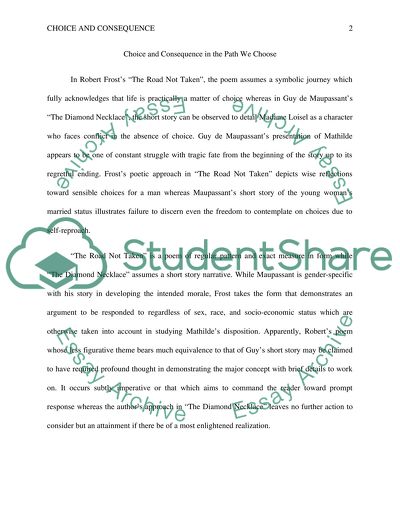Cite this document
(“Choice And Consequence In The Path We Choose Essay”, n.d.)
Retrieved de https://studentshare.org/literature/1391447-literature
Retrieved de https://studentshare.org/literature/1391447-literature
(Choice And Consequence In The Path We Choose Essay)
https://studentshare.org/literature/1391447-literature.
https://studentshare.org/literature/1391447-literature.
“Choice And Consequence In The Path We Choose Essay”, n.d. https://studentshare.org/literature/1391447-literature.


